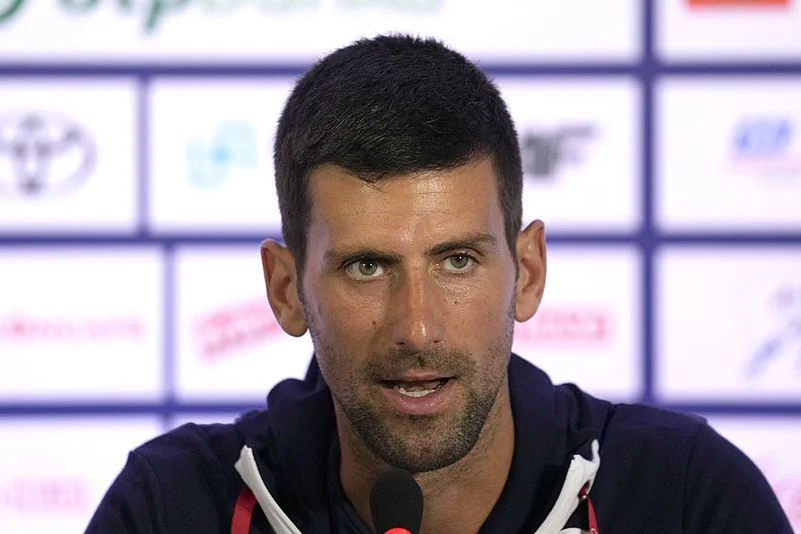With his medical exemption approved, Novak Djokovic may have some explaining to do when he gets to Melbourne to defend his Australian Open title. (More Tennis News)
The exemption allows the top-ranked Djokovic entry to the tournament regardless of his vaccination status for COVID-19, a subject he has declined to clarify amid months of speculation he could miss the season-opening major unless he can prove he's had two doses of a coronavirus vaccine.
That's a Victoria state government-mandated condition of entry for all players, staff, fans and officials entering Melbourne Park when the tournament starts on Jan. 17.
His revelation on social media that he was heading to Australia seeking a record 21st major title sparked some debate and plenty of headlines on Wednesday, with critics questioning what grounds Djokovic could have for the exemption and backers defending his right to privacy.
Australian Open tournament director Craig Tiley defended the “completely legitimate application and process” and insisted there was no special treatment for Djokovic.
Only 26 people connected with the tennis Grand Slam event applied for an exemption and, Tiley said, only a “handful” — estimated at about five — were granted.
The names, ages and nationalities of applicants were redacted for privacy reasons before each application for a vaccine exemption was assessed by two independent panels of experts, and Tiley noted Djokovic is under no obligation to reveal his reason for seeking one.
But, he suggested, it would be “helpful” if Djokovic chose to explain it to a Melbourne public still getting over months of lockdowns and severe travel restrictions imposed at the height of the pandemic.
“I would encourage him to talk to the community about it,” Tiley said in a news conference while Djokovic was in transit.
“We have been through a very tough period over the last two years."
Australia only started to reopen its borders late last year when more than 80% of adults nationally had received two doses of an approved coronavirus vaccine.
Restrictions were further eased when that number topped 90%.
Reasons allowed for anyone applying for a vaccination exemption can include an acute major medical condition, serious adverse reaction to a previous dose of a COVID-19 vaccine, or evidence of a COVID-19 infection within the previous six months.
Jaala Pulford, Victoria state's acting minister for sports, said “no one is or will be receiving special treatment because of who they are or what they have achieved professionally.”
“Lots of people in the Victorian community will find this to be a disappointing outcome, but the process is the process,” Pulford said.
“Nobody has had special treatment. The process is incredibly robust.”
Australian Prime Minister Scott Morrison initially said the decision was a matter for the government of Victoria, where Melbourne is the state capital.
“They have provided (Djokovic) with an exemption to come to Australia, and so we then act in accordance with that,” Morrison said.
“States provide exemptions for people to enter on those basis, and that's been happening for the last two years.”
Morrison later added that if Djokovic is unvaccinated, he still needed to produce satisfactory evidence upon his arrival to support the medical exemption.
“If that evidence is insufficient, then he won't be treated any different to anyone else and he'll be on the next plane home,” Morrison said.
“And so if medical exemptions had been provided by medical professionals and that's been furnished to him as a proviso for him to get on that plane, well, that will have to stack up when he arrives in Australia.”
Morrison said there's been numerous cases in recent years where people have had to provide suitable proof to support their claims for a medical exemption, "so the circumstance is not unique.”
Djokovic tested positive for the coronavirus in 2020 after he played in a series of exhibition matches that he organized in Serbia and Croatia without social distancing amid the pandemic.
It's not inconceivable that the 34-year-old Djokovic, who finished one win short of a calendar-year Grand Slam in 2021 when he lost the U.S. Open final to Daniil Medvedev, could have been infected again.
The decision on whether to elaborate now is fully in Djokovic's court.
















